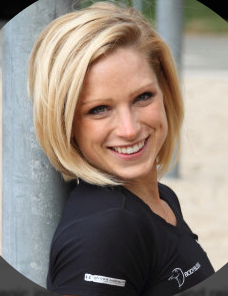I was just 21 when I was brought on as an account executive at a local TV station.
When I walked into work that first day, I was wracked with anxiety. I felt inexperienced and slightly unqualified, and couldn’t believe I’d been hired for such a senior position. It all felt too good to be true, and I was waiting for the other shoe to drop.
But soon enough, I was inundated with responsibilities. There was no more room for nerves, so I put all my anxious energy into getting up to speed and projecting the expertise I lacked.
It wasn’t always comfortable, and it wasn’t always easy, but by the end of my stint, I’d learned that leadership is about much more than a title and years of experience — it’s about people skills, problem-solving, and a willingness to learn.
Here are the key lessons that guided me through the experience and helped me develop my own ability to lead:
Be honest about the knowledge you lack, and listen to those who know more than you do.
The moment you think you have nothing to learn, you’re dead in the water. The only thing you can do is be willing to listen to the people who’ve been there and learn from their experiences.
When I was hired as an account executive, I didn’t know everything, or anything really, about the TV industry. I watched TV, but that was about it. I didn’t know the difference between broadcast and cable, and I didn’t know anything about ratings. Not to mention, the sales process was completely new to me, too.
So the first thing I did was reach out to people who had been in the industry for longer than I had. I was honest, hungry, and mostly — I listened. I absorbed as much information as possible from potential clients, then sought out my colleagues’ wisdom to determine how best to respond. And I never pretended to know more than I did.
People with expertise tend to want to share it, and they respect people who are honest about their areas of naivety.
Whether you’re 21, or 61, you should always be receptive to new ideas and information. Otherwise, you’ll be missing an opportunity to reach your potential.
If you want to be seen as credible, project an air of authority.
Imagine for a moment you’re sitting in the back of a restaurant with your business partners. You’re all awaiting the reps from a local TV station to present a plan for your digital media and broadcast TV for the upcoming year. And in walks a 21-year-old blonde — alone — wearing stilettos in the middle of winter.
What would you think?
Well, I was that blonde, and those seasoned professionals were some of my first clients as an account executive. I had to sit in front of them and sell not only ad space but also sell myself as a reliable person to do business with. First, I’d have to gain their trust and convince these business gentlemen that I — a young little thing barely out of college — knew what was best for them and their business.
I used my anxiety as fuel, transformed my nerves into confidence, and worked hard to play the part of the competent businesswoman. Eventually, it paid off. Those men in the back of the restaurant stopped seeing me as a kid and started treating me as an equal.
And today, whenever I have those initial nerves before I meet clients or hop on a sales call, I just take some time to remind myself: I know what I’m talking about, this is what I do.
When you see a leader who appears to have it all together, odds are, there’s something they’re nervous about, too. No matter who you are or what you do, you should always project the person you want to be seen as.
Offer your unique expertise as a resource when you can.
When you find yourself in a new role, it’s easy to doubt yourself.
You may not be the top in your field, but you probably have some level of expertise in at least one skill set. If you’ve just recently entered the work world, for example, you’re probably a lot more tech-savvy than the average industry veteran. If your early career experiences involved a lot of client management, you’re probably a great communicator.
You have to identify and play to your strengths, and sometimes that means getting ahead of the curve.
At the TV station, I caught onto new online trends, like web advertising, much faster than my older colleagues. I was also better able to communicate and integrate these new ideas and could position myself as a resource to my senior colleagues and project valuable expertise. It became a mutually-beneficial partnership. In exchange for their veteran knowledge and contacts, I got them up to speed on trends and helped them feel comfortable with the changing landscape.
The important takeaway here is that leadership is not all about having a title or knowing everything.
If you project confidence, keep learning, and find a way to make yourself valuable, you have what it takes to be a real leader and empower others — whether you’re a fresh-faced college grad, making a mid-career change, or the CEO of a Fortune 500 company.
Published on Medium.
Follow us here and subscribe here for all the latest news on how you can keep Thriving.
Stay up to date or catch-up on all our podcasts with Arianna Huffington here.


